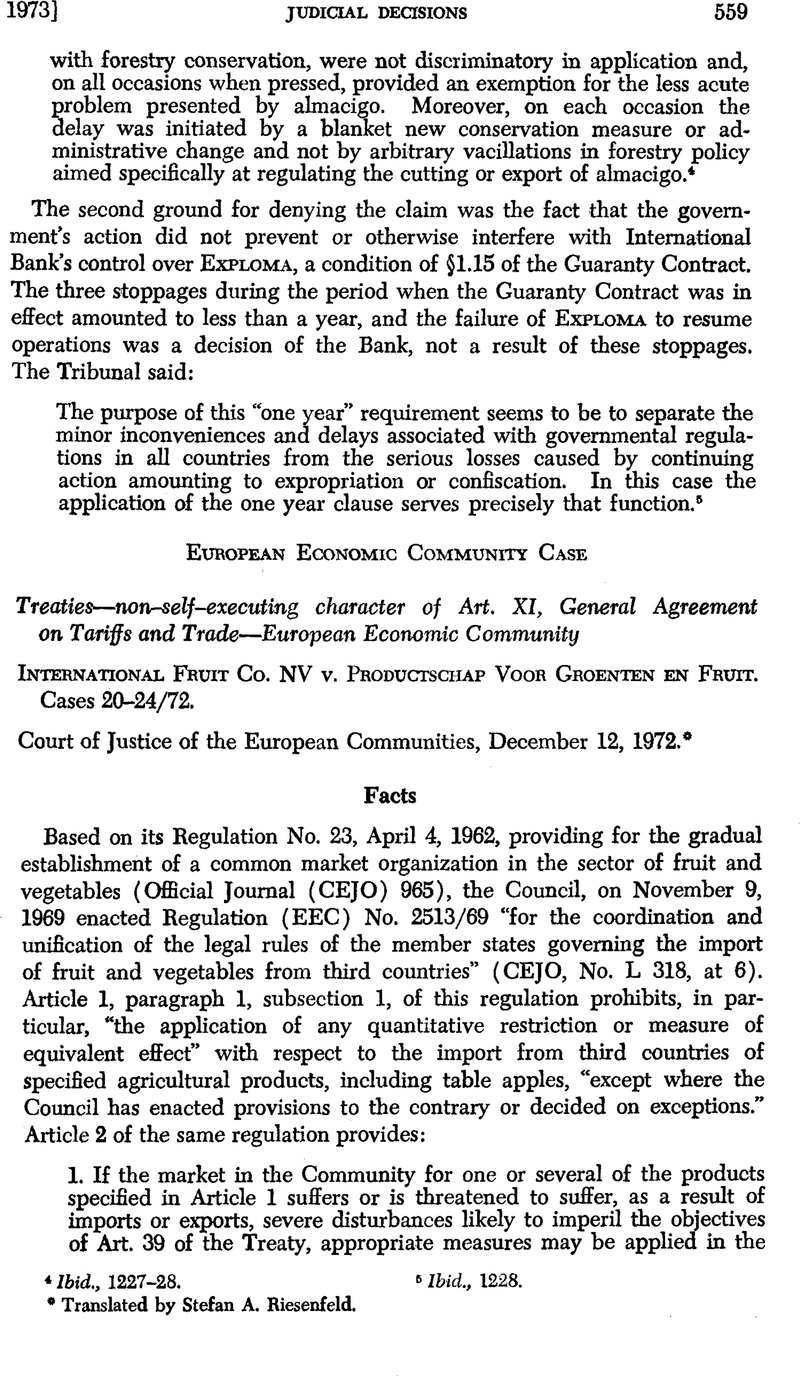No CrossRef data available.
Published online by Cambridge University Press: 28 March 2017

* Translated by Stefan A. Riesenfeld.
1 Excerpted and digested by Wm. W. Bishop, Jr. The English text is authoritative.
2 On the same date the Court came to the same decision in the Fisheries Jurisdiction Case (Federal Republic of Germany v. Iceland). Ibid. p. 48. 12 ELM 300 (1973). There was a similar Declaration by the President, Concurring Opinion by Judge Fitzmaurice, and Dissenting Opinion by Judge Fadilla Nervo. Ibid., 309, 310, 316.
3 Composed for this case of President Sir Muhammad Zafrulla Khan, Vice-President Ammoun, and Judges Fitzmaurice, Padilla Nervo, Forster, Gros, Bengzon, Petrén, Lachs, Onyeama, Dillard, Ignacio-Pinto, deCastro, Morozov, and Jimenez de Aréchaga.
In this connection, paragraph 7 of the Court’s opinion in the companion case brought by the Federal Republic of Germany reads:
The Federal Republic of Germany, in reliance on Article 31, paragraph 3, of the Statute, notified the Court of its choice of a person to sit as judge ad hoc in this case. No objection was made by the Government of Iceland within the time-limit fixed for that Government to make its views known in accordance with Article 3 of the Rules of Court. However, the Court, taking into account the proceedings instituted against Iceland by the United Kingdom on 14 April 1972 in the case concerning Fisheries Jurisdiction and the composition of the Court in this case, which includes a judge of United Kingdom nationality, decided by eight votes to five that there was in the present phase, concerning the jurisdiction of the Court, a common interest in the sense of Article 31, paragraph 5, of the Statute which justified the refusal of the request of the Federal Republic of Germany for the appointment of a judge ad hoc.
4 He said in part: “A big power can use force and pressure against a small nation in many ways, even by the very fact of diplomatically insisting in having its view recognized and accepted. It is well known by professors, jurists and diplomats acquainted with international relations and foreign policies, that certain ‘Notes’ delivered by the government of a strong power to the government of a small nation, may have the same purpose and the same effect as the use of force.”